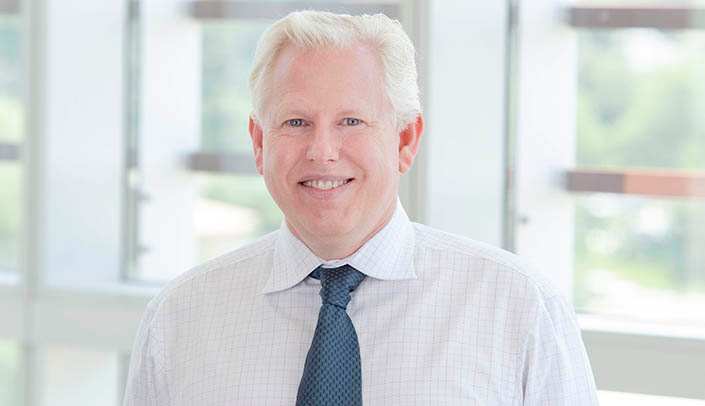UNMC has received approval to create a fellowship program in hospice and palliative medicine.
UNMC partnered with Children’s Hospital & Medical Center and the Nebraska-Western Iowa VA Healthcare System to create the state’s first formal training program to help alleviate a shortage of physicians trained in hospice and palliative medicine.
Physicians with hospice and palliative medicine training help patients with serious or terminal illnesses address problems with symptoms, including pain, depression and anxiety as well as help patients and their families meet social and spiritual needs. They also help determine the most appropriate treatments for patients and avoid care that may not help them meet their goals.
The one-year fellowship will begin in July 2020 with three fellows engaging in adult and pediatric rotations in areas such as pain management, oncology, and home hospice. One fellow will be focused on pediatrics at Children’s, while the adult-focused fellows will focus on rotations at Nebraska Medicine and the Nebraska-Western Iowa VA Healthcare System. New fellows will be selected each year.
The fellowship, which is subspecialty training after residency training, is open to physicians from across the state and nationwide. Physicians can have previously trained in multiple specialties and can even have practiced for years prior to deciding to pursue training.
The fellowship also will expand educational capacity for additional learning including medical students, nursing students, and resident physicians in end-of-life care.
“We need to dramatically expand the number of physicians trained in this area to meet the needs of patients in hospitals as well as in the outpatient clinics,” said Al Fisher, M.D, Ph.D., associate professor and chief of the UNMC Department of Internal Medicine’s Division of Geriatrics, Gerontology and Palliative Medicine. “We know from clinical studies that palliative care — even for those with treatable diseases — can improve outcomes and quality of life.
“We can help patients manage day-to-day symptoms related to serious diseases, but as an illness progresses, there also may be times when the burden of continued medical interventions outweigh their benefits, or when aggressive treatments become inconsistent with the patient’s goals.”
Dr. Fisher points to demands for physicians with these skills at the medical center, in part, because the programs care for patients with cancer, advanced heart failure, advanced lung disease, end-stage renal disease, or serious neurologic illnesses including dementia, Lou Gehrig’s disease, or multiple sclerosis.
He said one of the things physicians with the training can do is help identify patients who could receive the benefits of hospice earlier.
“Nationally we know people get referred to hospice late. The average time people spend in hospice is less than a month, and it is often just days or a few weeks. We’re really underutilizing a great resource for both patients and their families,” Dr. Fisher said.
